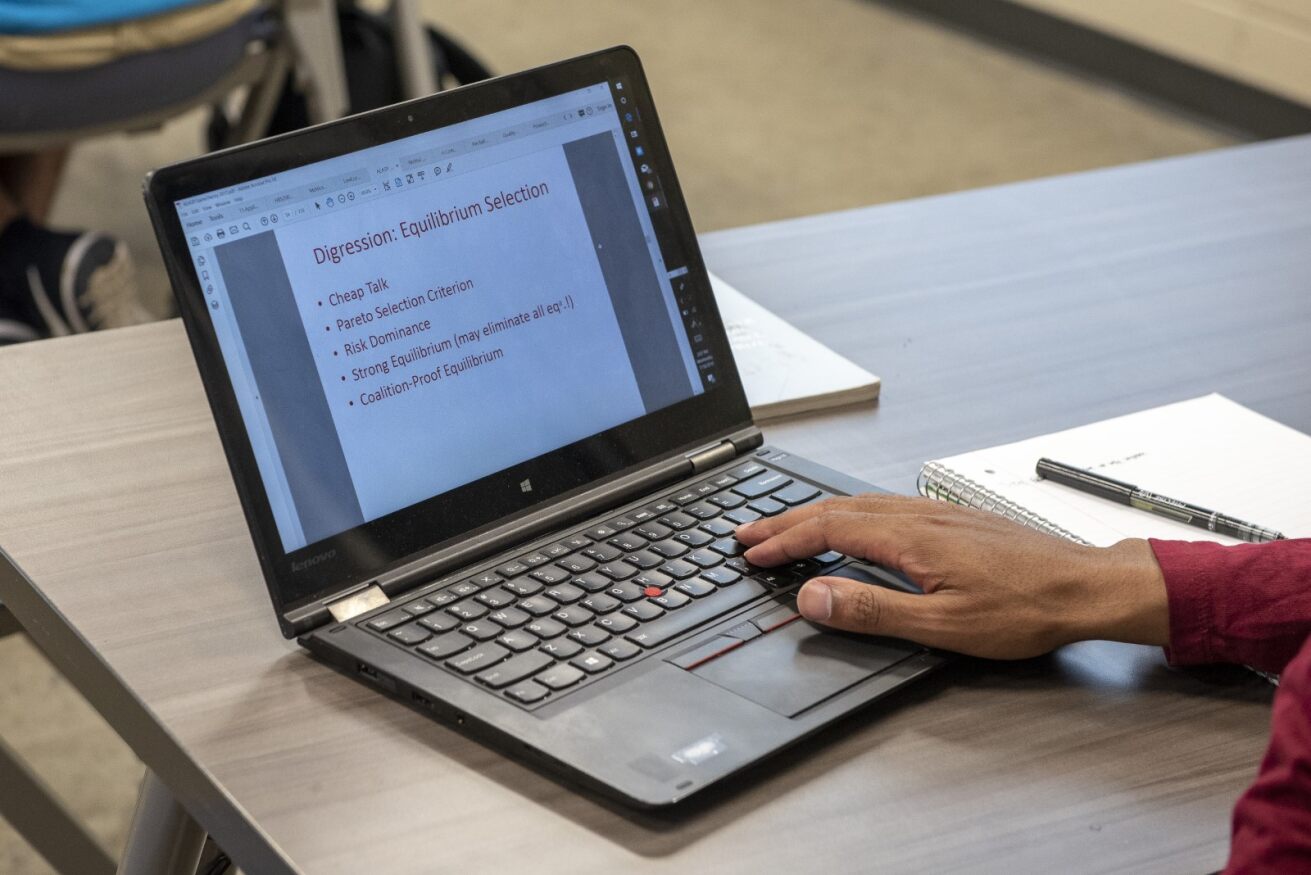The MSU Department of Economics is thrilled to announce that Wentao Zhou, Ph.D., has joined MSU as an assistant professor beginning fall semester 2024. He is a recent graduate of the University of Wisconsin – Madison.
“The economics department at MSU is one of the best and biggest in the U.S.,” Professor Zhou said. “I share common research interests with many faculty members here, and I am excited to learn from them and work with them on new, exciting projects.”
His research tries to understand how firms make investment and financial decisions and how macroeconomic conditions and government policies influence their decisions.
“For example, during the COVID pandemic, the federal government spent billions of dollars helping small businesses repay their debt,” he said. “My research helps us to understand whether and how such a policy influences corporate behavior and how we could design it better.”
He became interested in this type of research because he came from China and grew up in the “China Miracle,” a period of time where China’s GDP grew remarkably for over three decades.
“I have witnessed many businesses in my hometown become large corporations,” he reflected. “On the other hand, I also experienced the 2008 financial crisis, during which many firms went bankrupt in China, including my grandfather’s firm. Such experiences made me think about how firms should manage their investment and finance under different macroeconomic conditions and how government should support businesses, especially during recessions.”
His Ph.D. dissertation, “The Firm Balance Sheet Channel of Uncertainty Shocks,” has won several research grants and awards. In the paper, his statistical methods and theoretical models show that a rise in economic uncertainty will result in drops in corporate capital investment by motivating firms to reduce their debt and increase cash savings. The paper suggests that firms’ financial concerns and pre-existing financial conditions play an important role in shaping the impact of business uncertainty on our economy.
“Consider why the 9/11 terrorist attacks, the 2008 financial crisis, and the pandemic led to huge capital investment drops,” he said. “My work suggests that it is not only because those events directly lower potential business returns, a common view, but also because firms wanted a healthier financial position, that is, less debt and more savings, to cope with the increased business uncertainty induced by those events. Last, but not least, data strongly supports this new view.”
In the future, he plans to continue his research in macro-finance with a special focus on the role of financial frictions and firm beliefs in shaping corporate decisions and the macroeconomy.
“I would also like to do more policy-related research, connecting economic theory with real-world policymaking,” he said. “I interned at the International Monetary Fund last summer and will continue to work with the economists there.”
Professor Zhou will teach advanced macroeconomics to first-year Econ Ph.D. students for the next three or four years. He likes and looks forward to teaching and even received teaching awards as a TA during his Ph.D. program.
“MSU also attracts excellent students worldwide, and I am looking forward to connecting, working and growing with them,” he said.
“We’re grateful that Professor Zhou has joined our department and the important perspectives and dynamic research he brings in the area of macroeconomics," Professor Steven Haider said, chair of the department.
One fun fact Professor Zhou shared was that he does not know how to drive a car.
“I am almost 30 years old, and people are often surprised to learn I don’t know how to drive a car. I have lived in cities where driving is not necessary. So now, in East Lansing, I am going to driving school. And hopefully, I will have my license and car soon.”
To learn more about Professor Zhou and his research, visit his academic page: https://www.wentaozhou.com/.
***
By Katie Rose Frey


